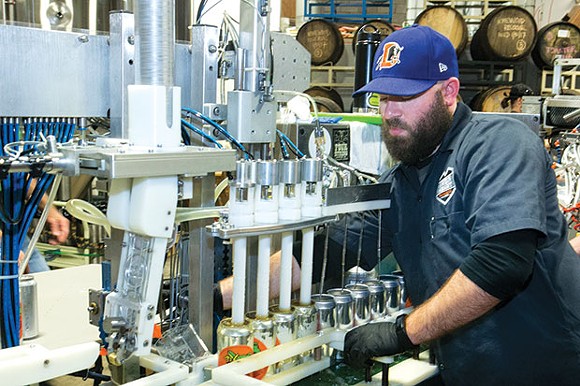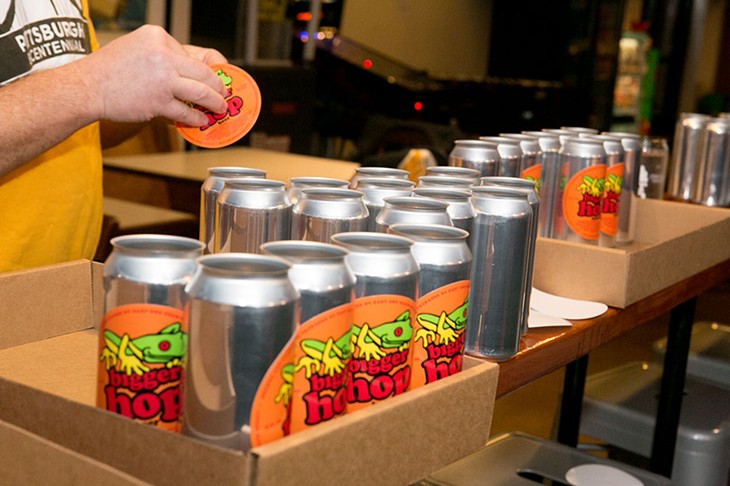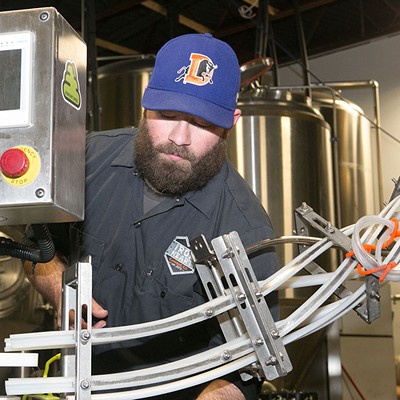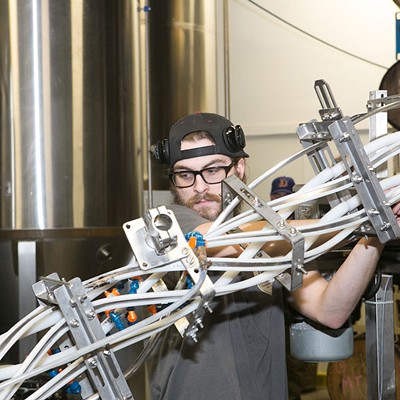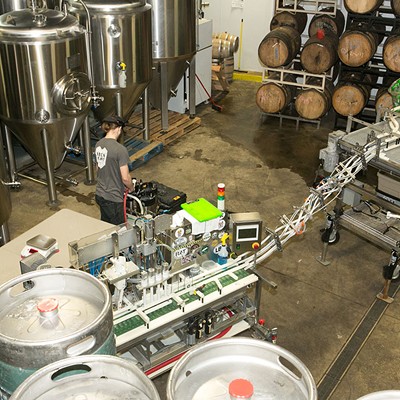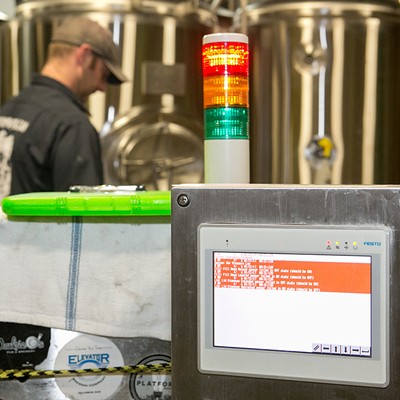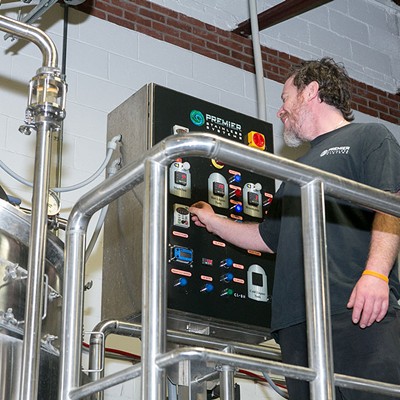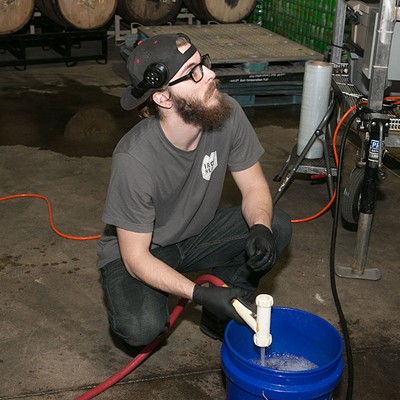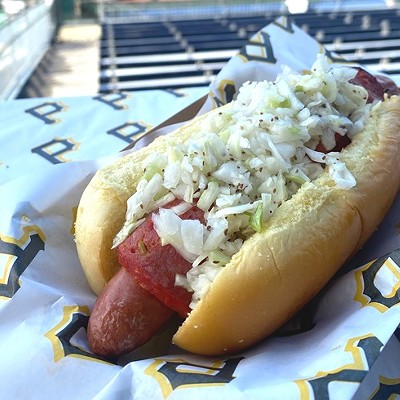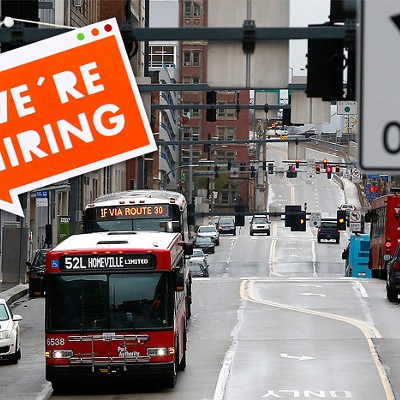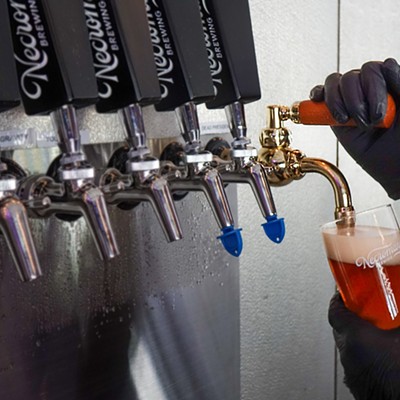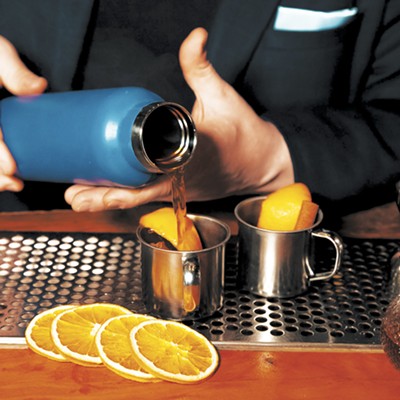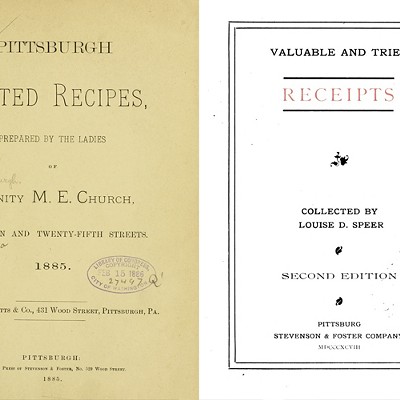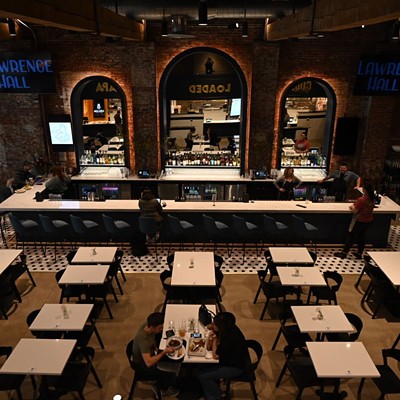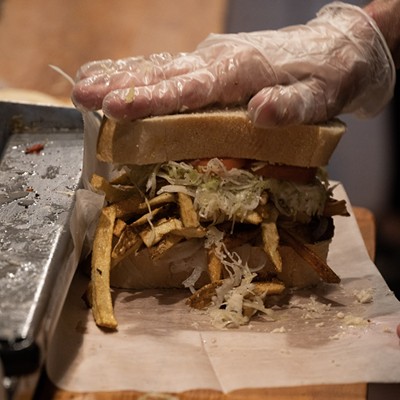After 13 years in the business, Scott Smith is ready to let his baby bird fly ... straight into the can. Big Hop, East End Brewing Company’s flagship American IPA, will now be distributed through a wholesaler to bars, restaurants and beer distributors dressed in a signature acid-green can with its familiar tree-frog logo (designed by Dan Rugh, of Pittsburgh’s Commonwealth Press).
Big Hop accounts for about 40 percent of East End’s brewing per year, and its recipe has stayed pretty true to its 2004 original formula, dreamed up by Smith when the brewery opened. “In 2004, Big Hop was a very hoppy beer. In today’s context, if you look at what’s considered hoppy, Big Hop really isn’t that hoppy by comparison,” says Smith. To accommodate evolving tastes, Big Hop has acquired siblings: Little Hop, which is dry-hopped, and Bigger Hop, a double IPA, which last week got a special run of 600 cans.
“We’ve been threatening to can for years,” says Smith. He was hesitant to can and ship his beer for quality-control reasons. “Now the kids are walking to school alone,” he says, laughing. Once the beer leaves the brewery, it becomes vulnerable to sitting on shelves and changes in flavor. Smith plans to address this by keeping shipments small, with canning runs monthly. The decision came on the heels of recent legal changes in Pennsylvania that opened sales opportunities to small breweries.
East End Brewing doesn’t have its own canning line, so it hired a New Hampshire-based mobile canning service, Iron Heart Canning Co. Founded in 2013, the company, with the charming slogan “We drink what we can,” sends a large trailer of equipment from its branch in Columbus, Ohio. Each canning run requires a two-man crew and a contraption that resembles a Rube Goldberg machine. During the hour-long set-up, each piece of equipment is flushed and sanitized. Iron Heart then takes readings for microbiological contaminants. “Priorities one, two and three are quality control,” says Iron Heart’s BJ Solomon.
Before the beer enters the can, the system is purged with beer to prepare the lines, with a total loss of less than 1 percent of the beverage. Before filling, each can is directly pumped with carbon dioxide to drive out any remaining oxygen. “Oxygen is the enemy in this whole process,” says Smith. Excess oxygen will quickly make the beer skunk (lose and change flavor), destroying its shelf life.
Hiring out a mobile canning line comes at a cost, but it lets a brewery operate without investing in equipment necessary for its own canning line. Each party is invested in the success of the other, and with more access to local beer for the consumer, everyone wins. Look for Big Hop cans on the market — but remember to stop by a local tavern, including East End, for a fresh-poured pint every once in awhile, too.

